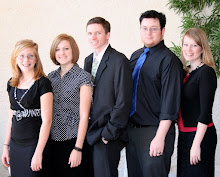 Confusion and fear
Confusion and fear* An historical companion to the Vietnam War, anti-war protests across the country escalated during the hot Spring of 1970. Emotions were raw on both sides of the issue. The killings at Kent State, Ohio, presented an unsettling pall of unspoken hurt I felt barely 3 months before I turned 13. Still too preoccupied with thinking about boys and horses, I had few resources from which to gain understanding about the tragedy. The Pulitzer-prize winning photograph by John Filo on the cover of Life magazine conveyed volumes in understanding one thing; it had to be wrong.
 I listened carefully whenever I heard my dad ranting about the "damn hippies" and communist-inspired "peace-niks". I looked at my brother, with his John Lennon wire frame glasses, long hair and knee-high fringed moccasins and his contra-band collection of rock records. He looked kind of like a "hippy", but he was only my brother. The kids lying dead at Kent State didn't look like hippies. Some of them were carrying their books to their next class.
I listened carefully whenever I heard my dad ranting about the "damn hippies" and communist-inspired "peace-niks". I looked at my brother, with his John Lennon wire frame glasses, long hair and knee-high fringed moccasins and his contra-band collection of rock records. He looked kind of like a "hippy", but he was only my brother. The kids lying dead at Kent State didn't look like hippies. Some of them were carrying their books to their next class.The Crosby, Stills, Nash & Young song on the radio seemed haunting in its beautiful vocal harmonies, even though I was uncomfortable with the line, "Tin soldiers and Nixon's coming...". This didn't sound right. It didn't sound fair to disrespect our President. But then, there were those pictures - anyone could see they were just kids at school. The whole thing was a tiny-voiced nagging that gently and gradually slipped away from my young sub-conscious until it was gone completely.
38 years later I am struck by the chilling irony; the National Guardsmen, ill-prepared for domestic crowd control, were the same exact age as the students. They were all so incredibly young. The knee-jerk over reaction by the Governor to declare martial law and send in the Guard only speaks for the general panic of the time. Some felt the country was losing its youth to the dark side of free-love and flag-burning. But like generations before, it really wasn't as much about social anarchy as it was about self-expression. At Kent State that fateful day, the vast majority of her students were still in class and minding their own business. The vocal minority demonstrating had a right to do so up to a point. The two professors who talked them down from retaliatory violence after the imprudent shootings are true heroes nearly lost to obscurity now.
The Kent State shootings or the May 4th massacre happened at Kent State University in Kent, Ohio in 1970. Four students were killed by the Ohio National Guard, nine others were wounded, one of whom suffered permanent paralysis.
Some of the students who were shot had been protesting against the American invasion of Cambodia. Other victims had merely been walking nearby or observing the protest from a distance.
There was a significant national response to the shootings: hundreds of universities and high schools closed throughout the United States as eight million students went on strike. The incident served to further divide the country politically and inspire cultural germination through music and media.

































